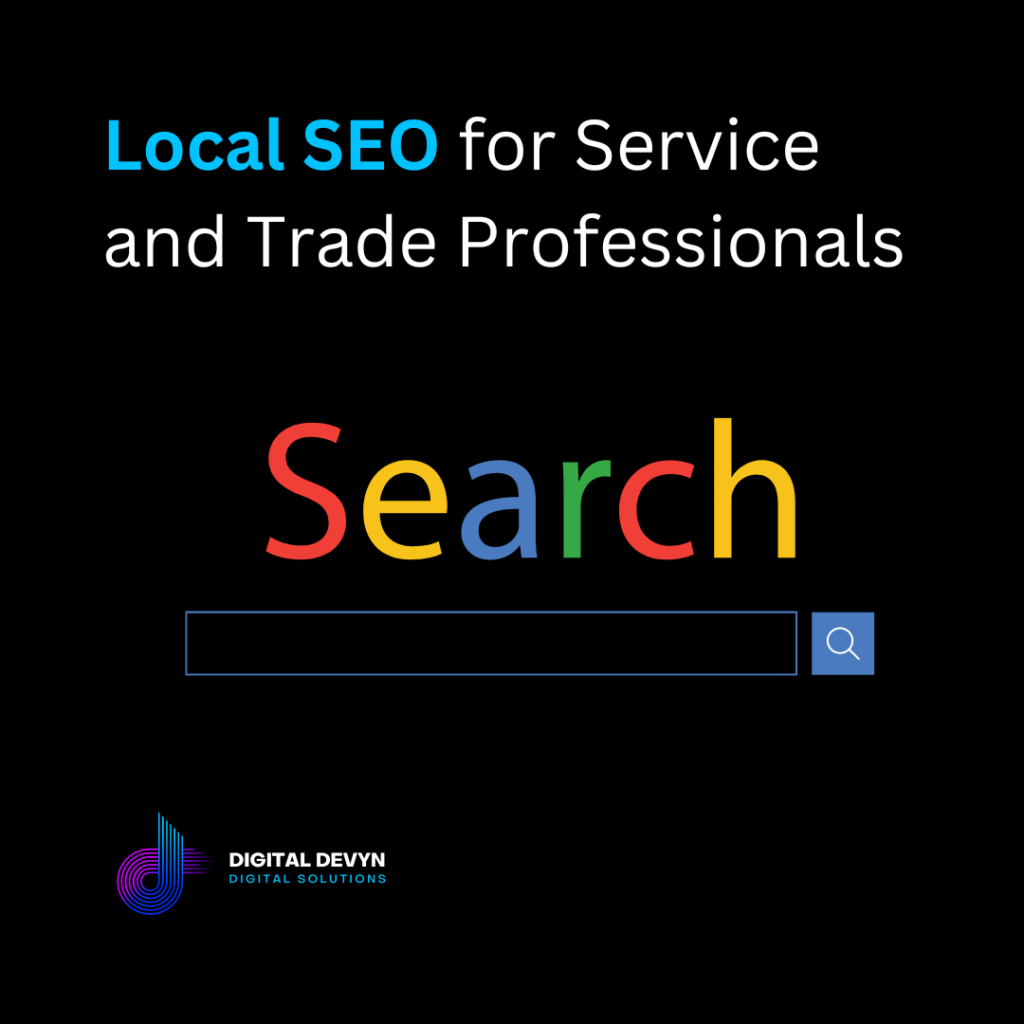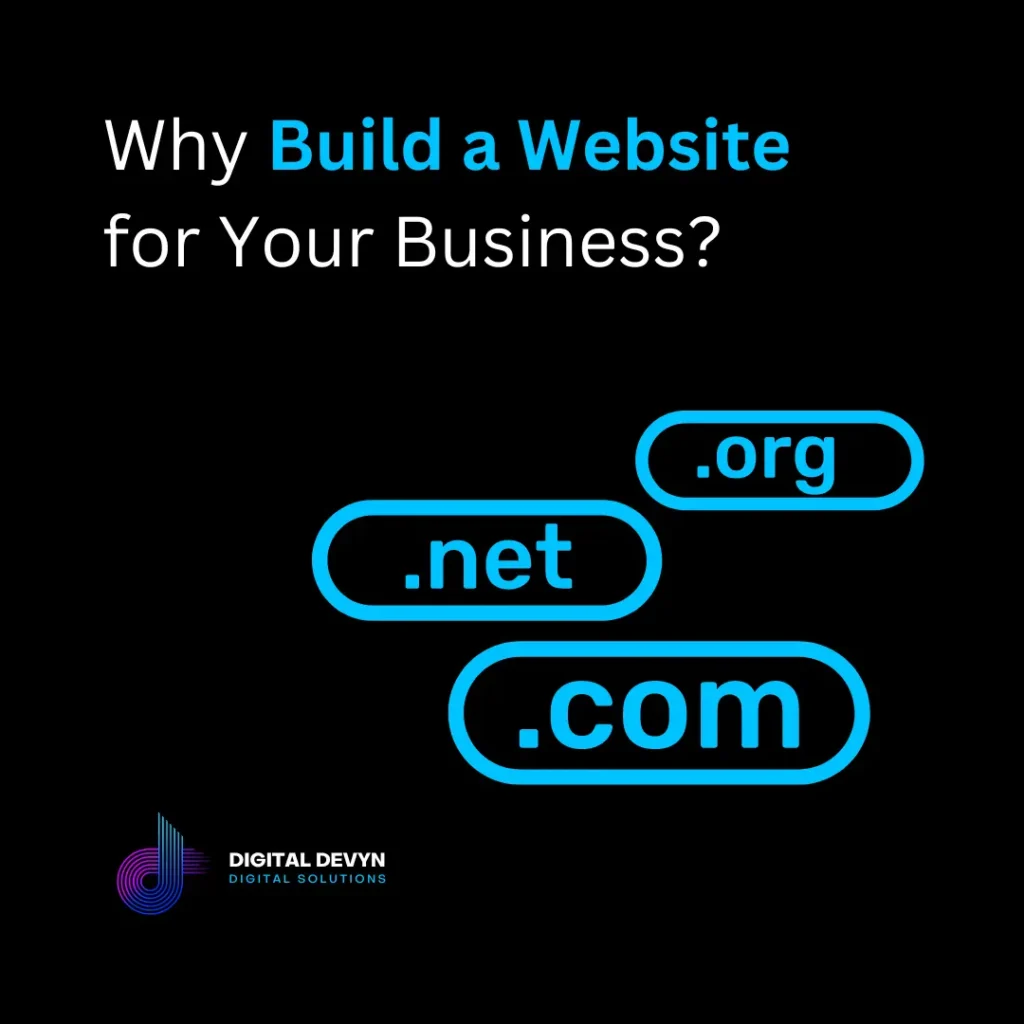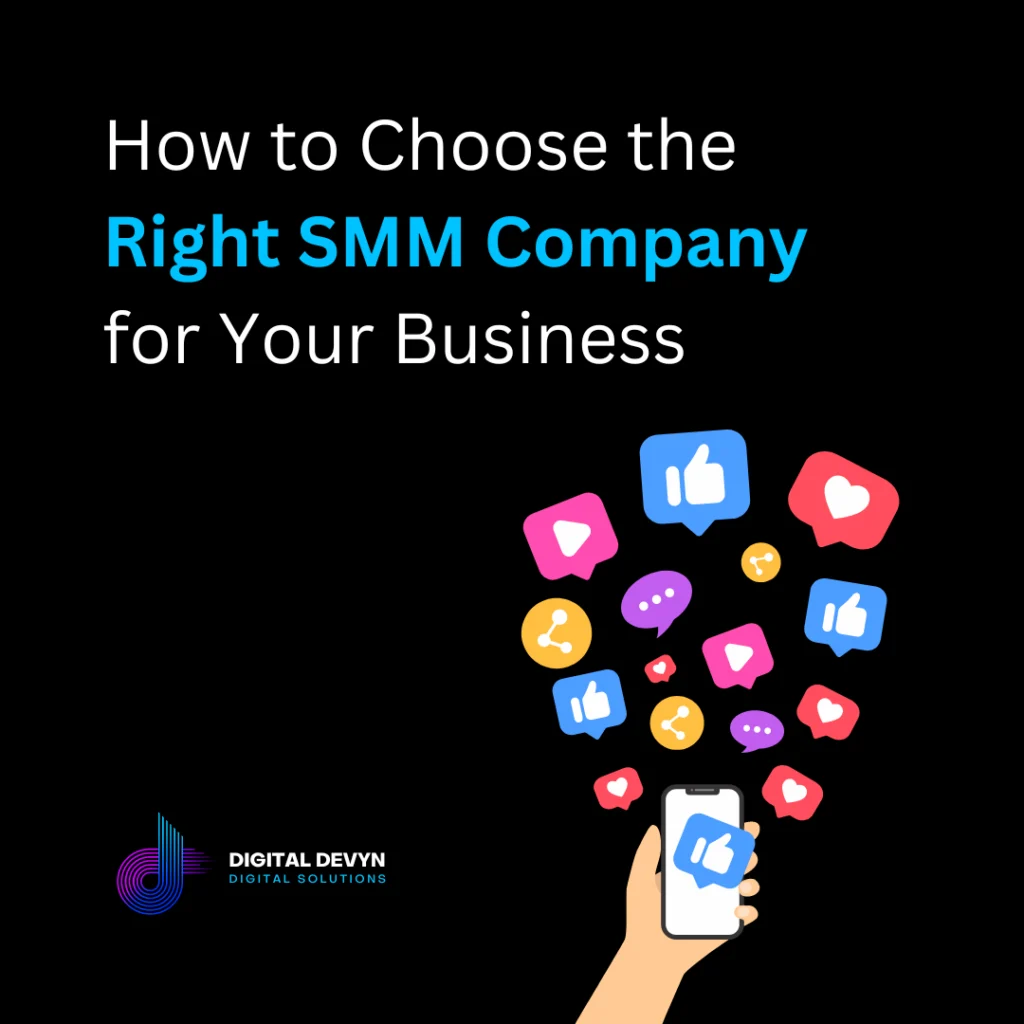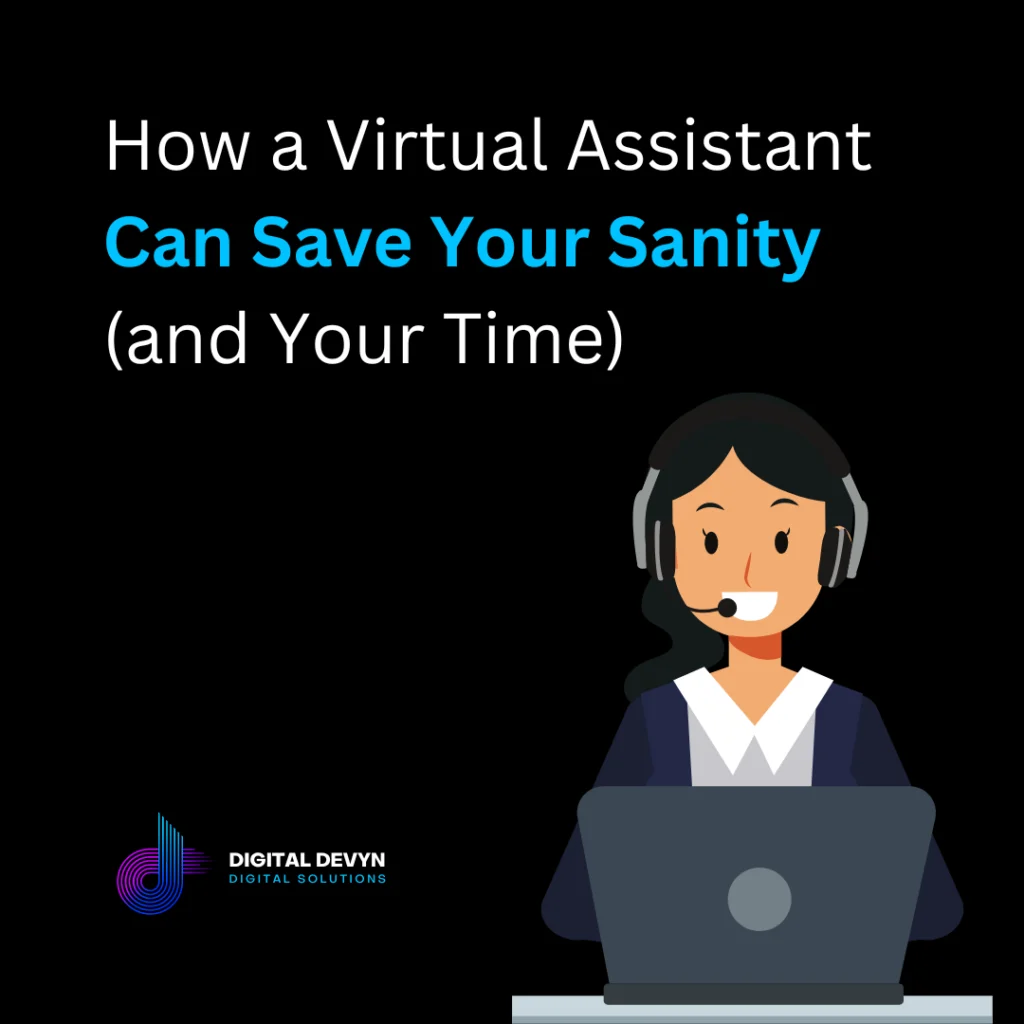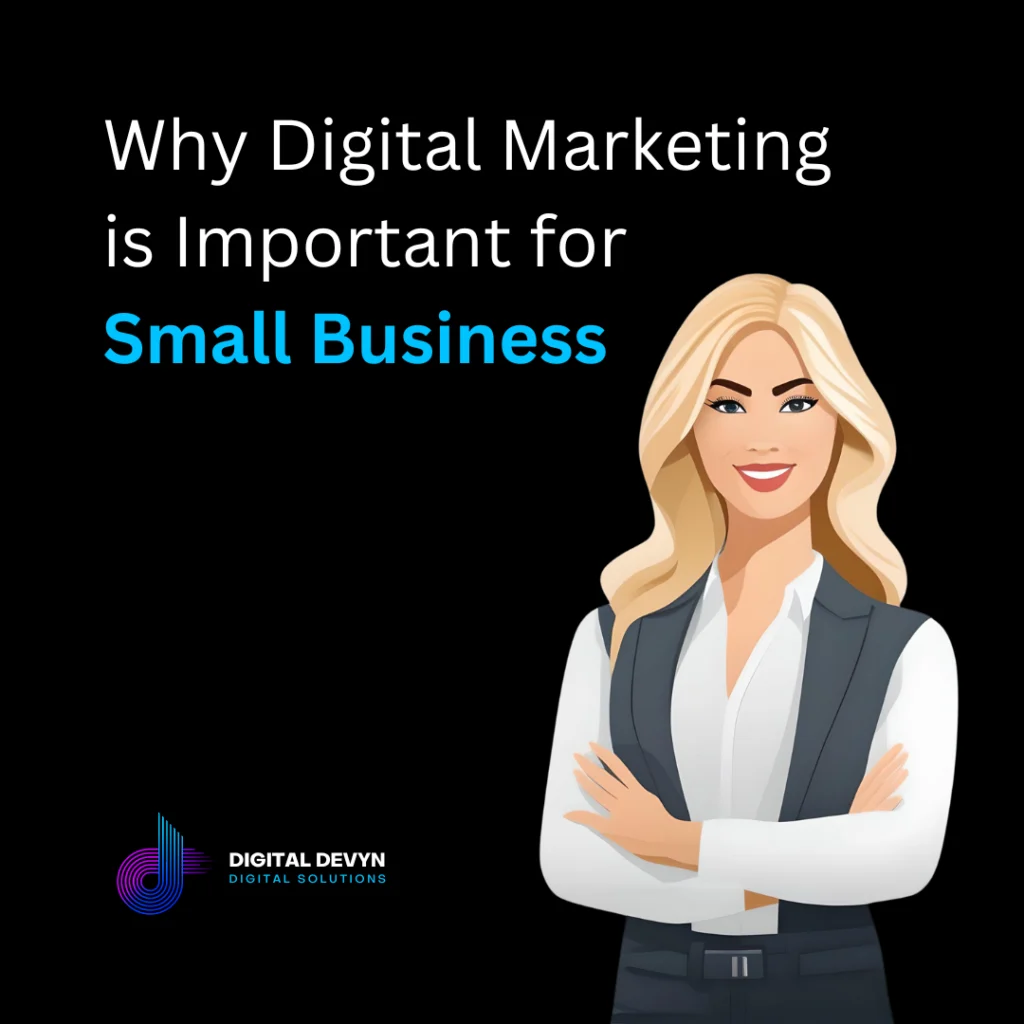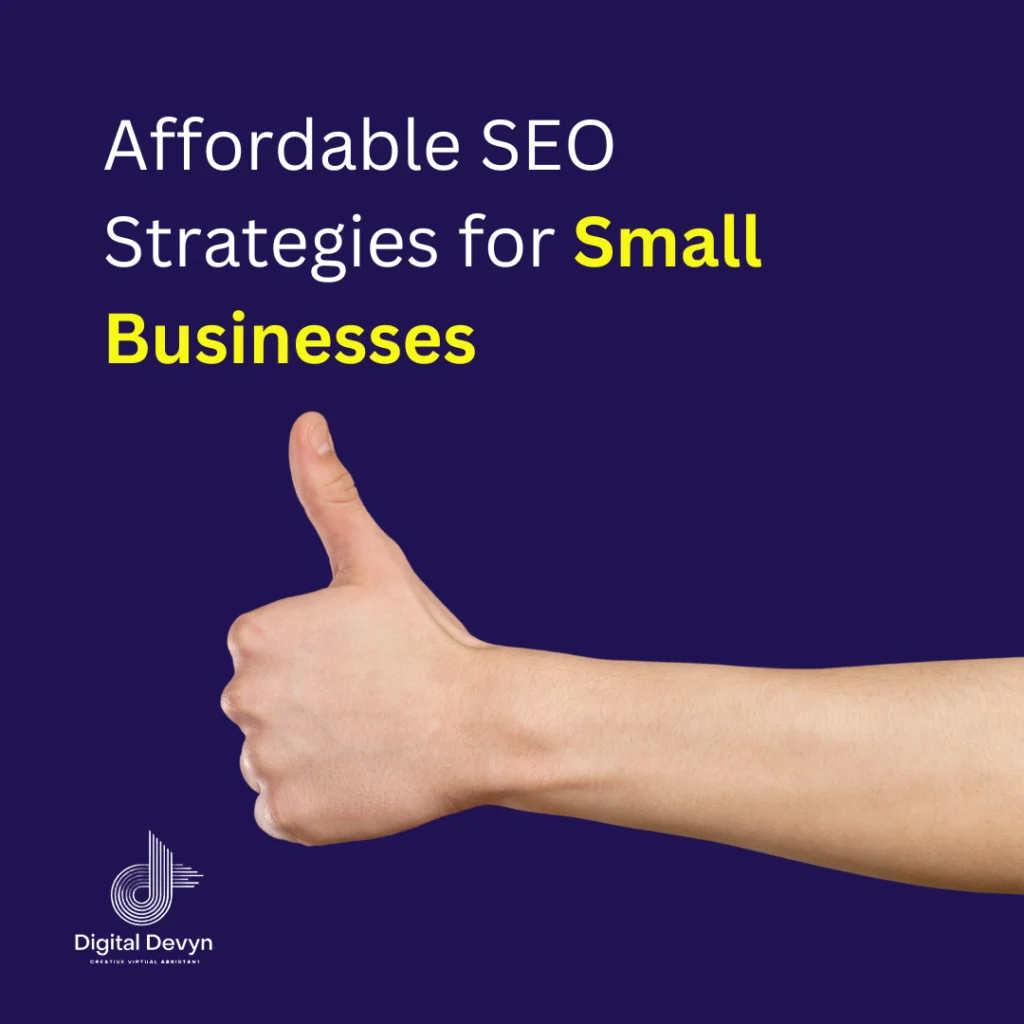Local SEO for Service and Trade Professionals
SEO 101 Local SEO for Service and Trade Professionals: Your Blueprint for Attracting More Clients in Denver and Beyond As a service or trade professional—whether you’re a plumber, electrician, HVAC technician, landscaper, or contractor—your business thrives on local customers. Yet, in today’s competitive digital world, simply having a website isn’t enough to stand out. That’s where Local SEO (Search Engine Optimization) comes in. At Digital Devyn LLC, we specialize in helping service professionals like you rank higher in search results, generate more leads, and ultimately grow your business. If you’re in cities like Denver, Phoenix, or Austin, and you’re serious about scaling your business, then you need a local SEO strategy that works. Let’s dive into what local SEO is, why you need it, and how it can be a game-changer for your business. Hire an SEO Specialist NOW > What is Local SEO for Service and Trade Professionals? Local SEO is the process of optimizing your online presence to attract more business from relevant local searches. For example, when a customer searches for “emergency plumber in Denver” or “best HVAC service near me,” a well-optimized local SEO strategy will ensure your business shows up in those results. It’s about showing up where your customers are looking. And for service and trade professionals, most customers are searching locally, often from their mobile phones, needing immediate solutions. The key factors search engines like Google consider for local SEO include: Google My Business (GMB) profile optimization Online reviews and ratings Consistency of your business’s NAP (Name, Address, Phone number) across online directories Geo-targeted keywords on your website (think: “Denver electrician” or “Austin landscaping”) Local backlinks from other websites or businesses in your area By optimizing these elements, you position your business to appear at the top of search results, especially in Google’s local 3-pack—those top three local businesses you see when searching for services. Why Local SEO is Essential for Service Professionals You’re not alone in your market. Cities like Denver or Phoenix are booming with competitors in your trade. So, why should your business be the one that stands out? Let’s explore the tangible benefits of local SEO and why it’s not just an option—it’s a necessity. 1. Attract More Local Customers When your business ranks in the local 3-pack or the top organic search results, you’re getting in front of the people who need your services right now. If your competitors are showing up and you’re not, you’re losing business—period. Example: A Denver plumber who shows up in the local search results for “24/7 emergency plumbing in Denver” will get far more calls than one that’s buried on page two. 2. Higher Search Rankings Mean More Leads Google prioritizes relevant, local businesses for service-related searches. If you’ve optimized your local SEO, you’re far more likely to rank higher than your competition when potential clients search for services you offer. Tip: Use geo-targeted keywords on your website, such as “Denver HVAC installation” or “Phoenix roofing experts.” By using the right terms, you signal to search engines that you’re the best local option for the job. 3. Get Targeted Traffic, Not Just Clicks Local SEO ensures that the traffic you get is highly targeted—meaning that it’s made up of people actively looking for your services in your area. This leads to higher conversion rates because they’re already in need of your services. Example: If you’re an Austin electrician and you’re ranking for “Austin electrical repair,” you’re directly connecting with homeowners or businesses that need your services, right now. 4. Cost-Effective Marketing Local SEO is one of the most cost-effective marketing strategies available. Unlike paid advertising, which stops working as soon as you stop spending, SEO continues to bring in traffic and leads once it’s established. Tip: Optimizing your Google My Business profile and gathering positive customer reviews can have a major impact on your local SEO without a recurring ad spend. It’s a powerful long-term investment in your online presence. 5. Build Trust and Credibility with Customers When your business appears at the top of local search results, it builds trust. People tend to trust Google’s recommendations, and by ranking high, you position yourself as the go-to provider in your area. Tip: Encourage happy clients to leave reviews on your Google My Business profile. Respond to reviews—both positive and negative—to show you care about customer feedback. 6. Take Advantage of Mobile and “Near Me” Searches With the rise of mobile searches, especially “near me” searches, local SEO ensures your business appears when someone nearby is searching for services on their phone. If you’re not optimizing for mobile, you’re missing out on one of the fastest-growing segments of search traffic. Example: A San Diego landscaper who ranks for “landscaper near me” when someone searches on their phone has a much higher chance of getting that call. How to Get Started with Local SEO: Steps You Can’t Ignore Ready to boost your local SEO and start seeing more clients coming through your door? Here’s what you need to do to get started: 1. Claim and Optimize Your Google My Business Profile Your Google My Business profile is essential. Claim your listing, fill out all the relevant details—business name, address, phone number, website, hours, and services. Add photos, post updates, and keep it fresh with new content. Pro Tip: Update your GMB profile regularly, and don’t forget to add photos of completed projects to show off your work. If you can add photos daily of your staff, office, and projects that’s even better! 2. Use Location-Specific Keywords Incorporate geo-targeted keywords into your website content. Your service pages, meta descriptions, and even blog posts should reflect the cities and neighborhoods you serve. For instance, “Phoenix HVAC repair” or “emergency plumbing in Denver” are great examples. Pro Tip: Create dedicated service pages for each area you serve to boost your chances of ranking in multiple locations. 3. Encourage Customer Reviews Positive reviews not only boost your local rankings but also build trust with potential customers. Make
Local SEO for Service and Trade Professionals Read More »

